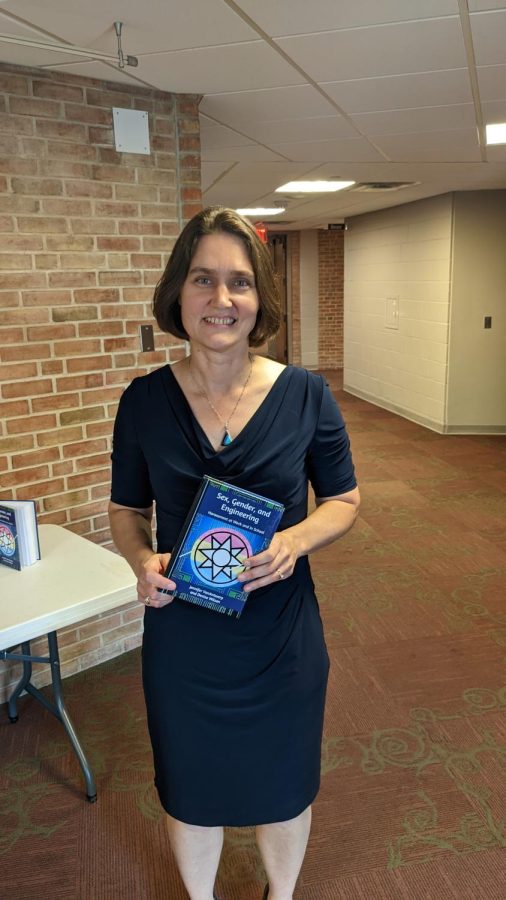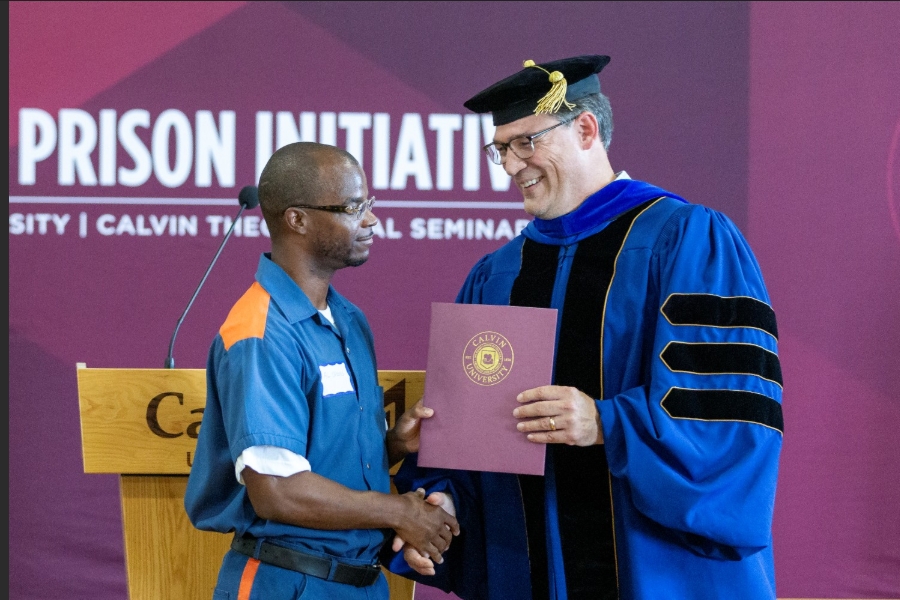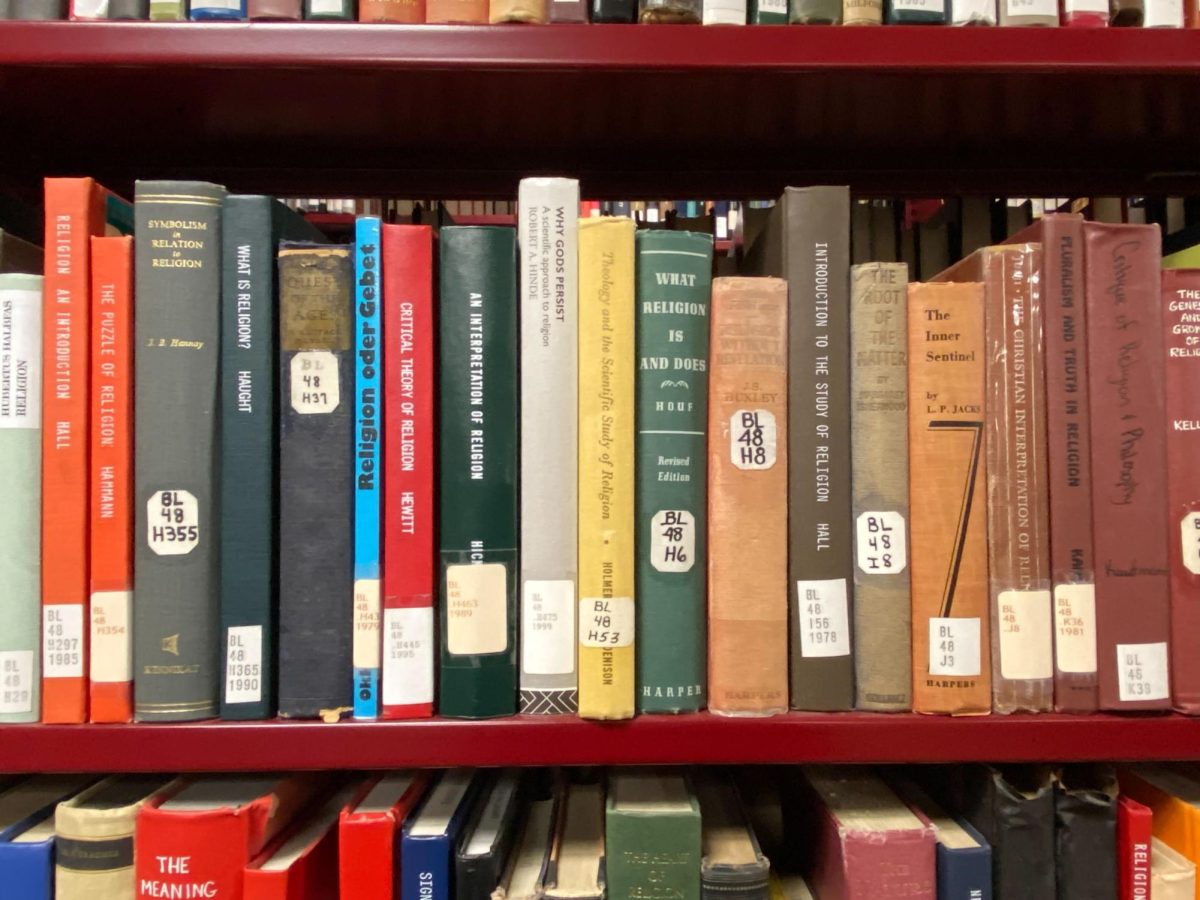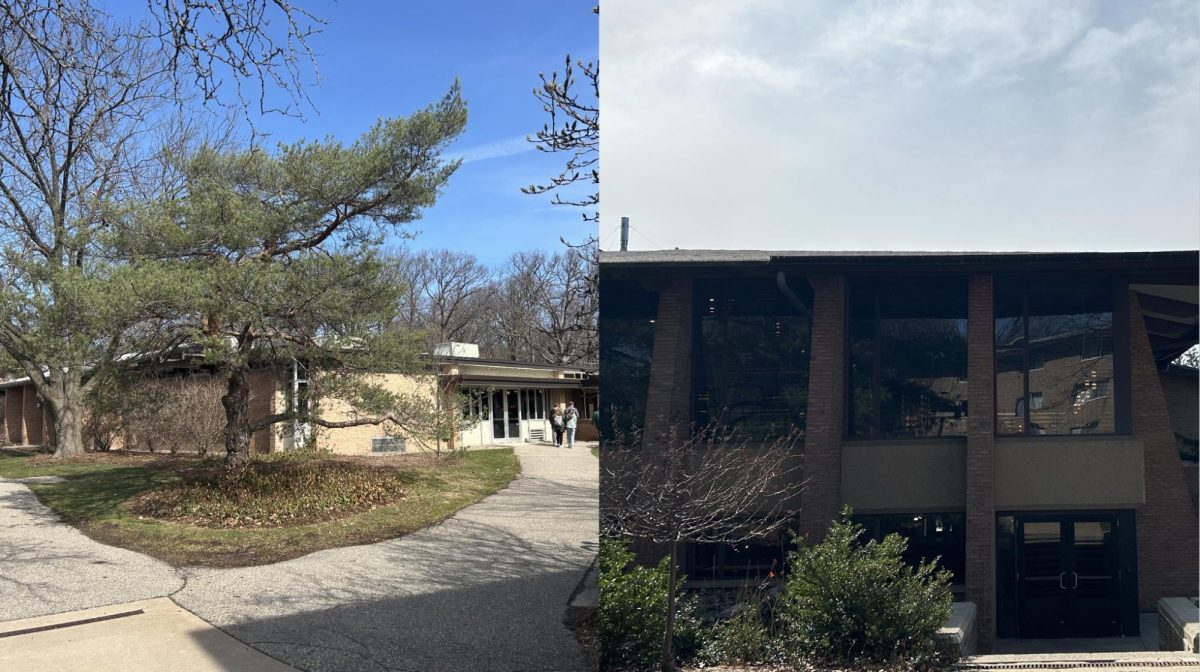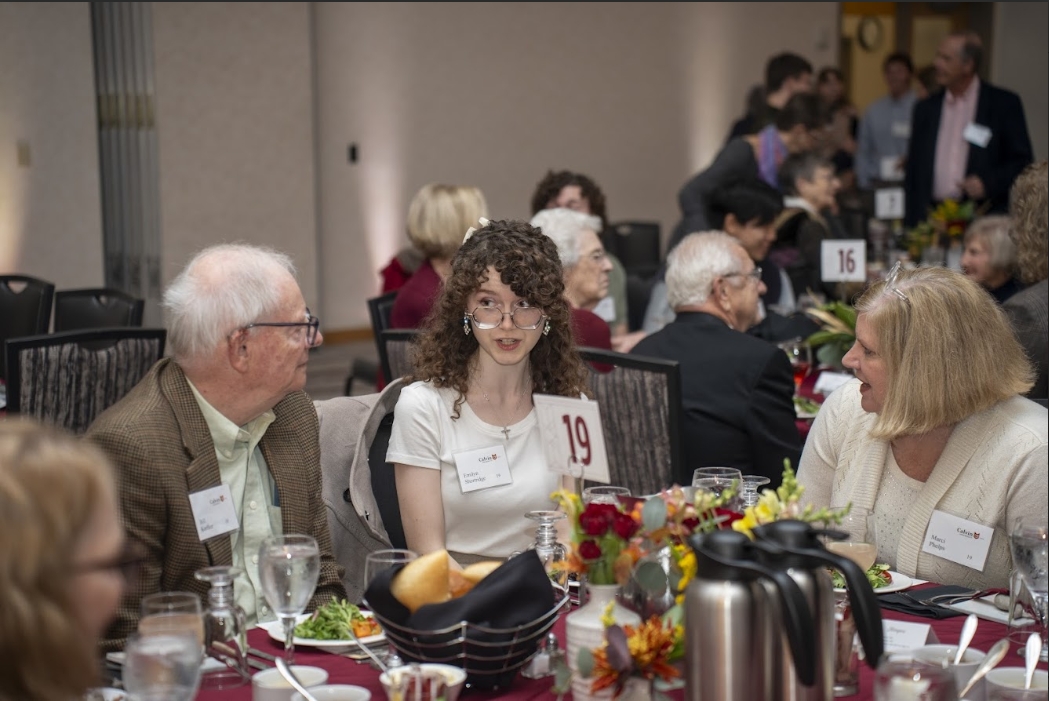“Role models matter,” says engineering professor Jennifer VanAntwerp, especially when you’re talking about gender. Fifty-three percent of Calvin’s student population are women. But this ratio is not reflected in Calvin’s faculty.
Less than one-third (31%) of the tenured faculty at Calvin University are women. This percentage is just slightly lower than the national average of 36%, as reported by the American Association of University Women. However, the issue of the faculty gender divide at Calvin is much more complex than one number. Tenure-track cycles, faculty workloads, retention of female faculty, and support systems are key considerations in exploring this issue.
A Closer Look at the Data
The Integrated Postsecondary Education Data System (IPEDS) is a project of the National Center for Education Statistics that collects data on all colleges and universities around the country that receive federal aid. According to the 2024 data – which is still in the process of being reported– 39 out of Calvin’s 125 tenured faculty are women.
While faculty who already have tenure are one piece of the puzzle, it’s also important to consider Calvin’s tenure-track faculty appointments. \Tenure-track faculty do not have tenure yet but will be evaluated to receive it three to six years after starting at Calvin. . According to 2024 IPEDS data, 53% of Calvin’s current tenure-track faculty are women.
Noah Toly, Calvin’s provost (a position which is the head of Calvin’s academic division) told Chimes in an email that Calvin has hired 16 women and 17 men into tenure-track positions over the past four years.
This has kept the overall percentage of tenure-track and tenured women at Calvin consistent – and raised the percentage of tenure-track professors who are women. As these newly-hired faculty members come up for tenure, in the next 4-6 years, the percentage of tenured female faculty will increase as well.
Despite the increases, there are enduring challenges for the gender balance among Calvin faculty. Budget prioritizations in 2020 and the effects of the COVID-19 pandemic disproportionately affected women. According to Kumar Sinniah, the chair of the biochemistry department and a former member of the Professional Status Committee, Calvin has a “last in, first out” policy about terminations of six year term and tenured faculty, which means that those who were hired in most recently get laid off first. Because the women who were hired into tenure-track positions were disproportionately recent hires, a last-in, first-out policy disproportionately affected women.
Retention as a key support mechanism
It’s not just new hires that are under pressure. According to documents reviewed by Chimes, Calvin has lost at least 12 mid-career or senior-level female faculty members since 2020. These women have since moved to other jobs. According to Kathi Groenendyk, chair of the communications department, senior female faculty members provide key mentoring and support to their colleagues. When Groenendyk started at Calvin in 1998, “there was a group of senior women faculty members who would meet quite regularly for coffee time.” This informal support system “was really helpful to navigate my place at Calvin” and helped provide context about university culture and the experience of being a female faculty member.
Sabrina Lee, professor of English, came to Calvin in 2023 and told Chimes she has also felt this support. “I do feel incredibly supported by the women.” Whether through texts or conversations Lee emphasized that “women look out for each other here in a way that my male colleagues don’t”
Why some faculty leave
One former faculty member, Emily Helder, left Calvin in 2023 and now is a professor of psychology at Hope College. Helder’s reasons for departure were threefold. One reason, Helder told Chimes, is that she was “ struggling with the way that Calvin’s policies were being created around what faculty could say and do on LGBTQ topics.” She also “was experiencing some poor treatment based on gendered issues,” and despite raising concerns with her dean, President LeRoy, and President Boer, “it didn’t feel like it was changing and so I didn’t have a lot of hope that it was going to get better.” Helder said. Helder also spoke of burnout and an increasing workload.
VanAntwerp, professor of engineering, echoed feelings of burnout. Faculty members must balance teaching, research, service on committees, and student advising. Van Antwerp told Chimes that, due to the small pool of options, women and minority faculty may get “disproportionately tapped” for committee service as Calvin seeks diverse representation on those committees.
Helder said that while diverse committees are important, “when you have a small or a shrinking pool of women that needs the same amount of work for fewer people,” this service can add more stress.
Sometimes, a gender imbalance among students in a certain department can exacerbate this strain on faculty. According to VanAntwerp, “In departments where there’s fewer women, we feel that because all the women students have a tendency to want to seek out a woman faculty member for informal advice.” The role of women faculty as informal advisors is, in some cases, an additional responsibility that male faculty may not have.
Groenendyk notes that feelings of burnout and disengagement are also “cultural organizational trends in higher education” and are influenced, again, by that loss of senior female faculty mentors. “When we lose those kinds of larger mentoring informal options, it’s much easier to become disengaged.”
VanAntwerp said that, at a religious institution like Calvin, theological ideas like the belief that all humans bear the image of God can provide a powerful foundation for equity in the workplace.
In spite of this, it’s important to recognize that “we live within the framework of humanity and society and gendered ways of seeing things and those things then still show up at Calvin in all the same ways,” VanAntwerp said. For Lee, although things may be changing now,, it’s important to acknowledge that “history plays a part, on this campus, especially as a religious institution that has in the past had a very complementarian orientation to gender dynamics.”
What’s Being Done?
Calvin has a variety of initiatives aimed at increasing gender equity for faculty and staff. The Gender Equity Committee, according to committee chair Elisha Marr, aims to address cultural and structural concerns of gender equity, things like specific systems or policies at Calvin.
The Provost’s Office, according to provost Noah Toly, “has supported women in participating in the CCCU’s Women’s Leadership Development Initiative, which supports women who are thinking about or qualified for a next step in the direction of leadership or applying their learning in their current role.”
The academic division has also sponsored women to attend the Advancing Women in Leadership Conference, a CCCU-led conference aimed at raising awareness “of the underrepresentation of women in senior-level leadership within the context of Christian higher education, and to prepare women of all ages and at all career stages for professional advancement, influence, and impact,” according to the conference’s website. Female faculty members and administrators from Calvin returned with renewed motivation “to support and encourage each other and promote their, you know, flourishing and success,” Toly told Chimes.
Calvin has also received a grant from Science and Christianity at Oxford (SCIO) to examine how “various underrepresented groups on their faculty experience certain challenges and have opportunities to flourish in their roles.” Less formal initiatives include professional development book clubs and various social events.
From an outsider perspective,Helder encourages Calvin to “engage in some concerted listening to female faculty members about what they need” including things like “workload imbalances [and] a robust Title IX and Safer spaces process.” For Lee, supporting women faculty looks like hiring more women, especially more women of color. And, on a communal level “everyone being open to learning and growing and trying to make [Calvin] a place of further flourishing.”
The importance of having a gender diverse faculty, according to Groenendyk, is in perspectives gained. “If everyone is the same, you’re not always going to be looking at all the needed angles.” But diversity and equity work is more than just utilitarian, according to Marr. “We at Calvin should represent the global world, that’s why we should care about gender diversity,” Marr said.



